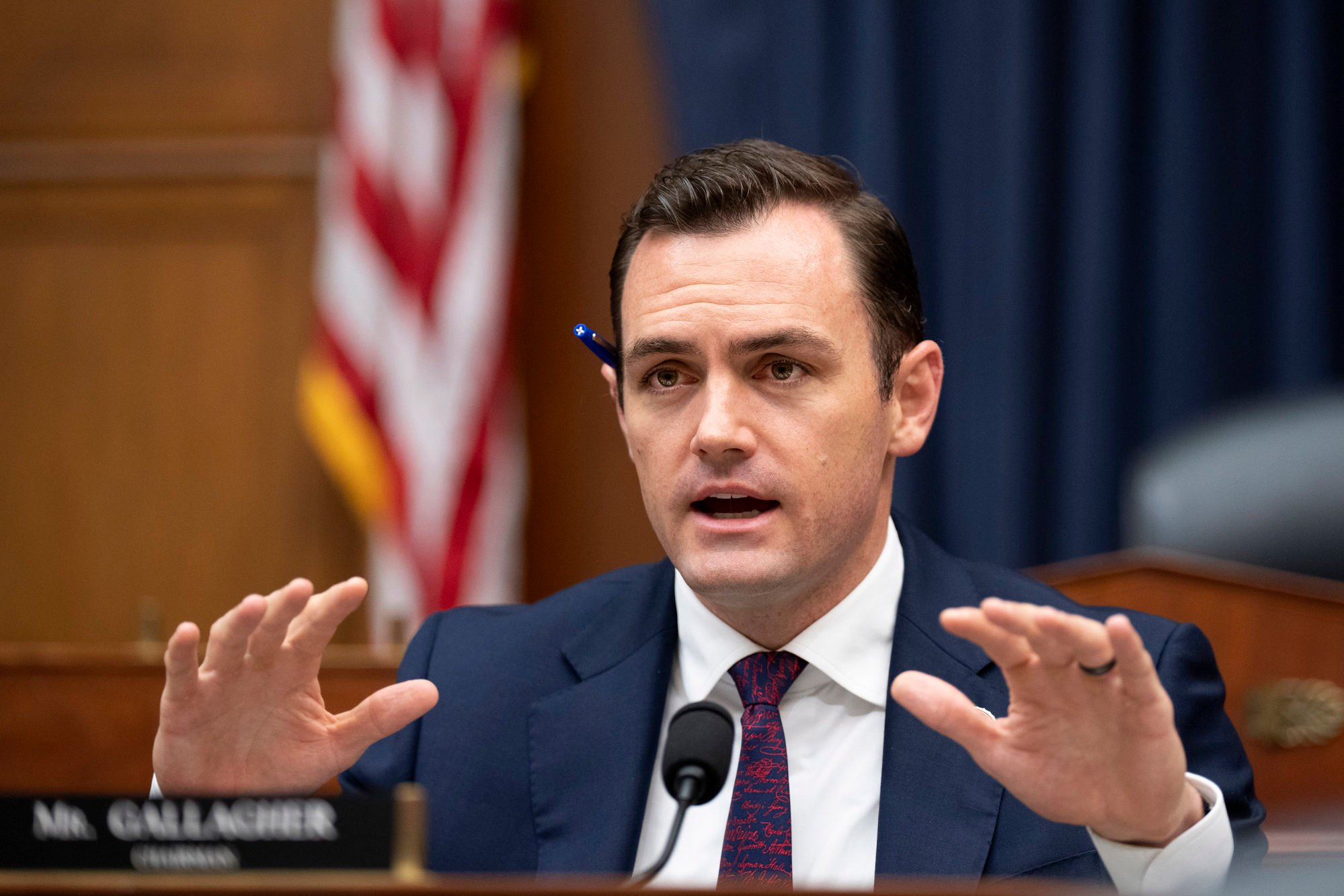US President Joe Biden’s administration must stop efforts to “manage” competition with China and pivot to an explicit cold-war stance against the Asian giant, two prominent US Republicans who have guided Washington’s China policy said.
Matthew Pottinger, the top Asia adviser on former president Donald Trump’s National Security Council, and Wisconsin congressman Mike Gallagher, ex-chair of the House select committee on China, accused Biden of “prioritising a short-term thaw with China’s leaders at the expense of a long-term victory over their malevolent strategy”.
Likening the Biden administration’s tack to that of detente with the Soviet Union in the 1970s, the policymakers said in an essay published in Foreign Affairs magazine on Wednesday “the current approach will yield little cooperation from Chinese leaders while fortifying their conviction that they can destabilise the world with impunity”.
Do you have questions about the biggest topics and trends from around the world? Get the answers with SCMP Knowledge, our new platform of curated content with explainers, FAQs, analyses and infographics brought to you by our award-winning team.
Gallagher made Washington policymakers’ concerns about China more prominent in the many events that his committee organised, some during prime-time viewing hours. And Pottinger testified at its first hearing, calling Beijing’s ability to present itself as a responsible interlocutor “one of the great magic tricks of the modern era”.

The essay ran amid a series of high-level engagements that the Biden administration has conducted with Chinese counterparts, including a call last week between the US leader and President Xi Jinping that both sides called “candid” and “constructive”.
Deputy Secretary of State Kurt Campbell on Tuesday said recent dialogues with China, including a coming visit to Beijing by Secretary of State Antony Blinken, indicated the Chinese government was “determined to keep US-China relations on a steady, stable path”.
Campbell recently held the same role in Biden’s NSC that Pottinger did under Trump.
Citing a visit to Beijing last year by Blinken, Pottinger and Gallagher turned Campbell’s assessment around, asserting that Xi was using these engagements to control Biden’s officials.
How far did Janet Yellen’s trip move the ball for US-China relations?
“Whereas Xi had sat amiably alongside the billionaire Bill Gates just days earlier, the US secretary of state was seated off to the side as Xi held forth from the head of a table at the Great Hall of the People,” they said.
“For the first time in years, Xi appeared to have successfully positioned the United States as supplicant in the bilateral relationship.”
The essay portrayed the popular Chinese-owned video-sharing app TikTok as a key tool in “a bitter information war against the United States, which is losing, despite its natural advantages”.
Gallagher is the author of a successful House bill that would force TikTok’s owner, ByteDance, to divest the app if the measure passes in the Senate and is signed into law by Biden. In a surprise move, the Wisconsin lawmaker announced last month he would leave the House of Representatives on April 19.
US and Chinese military discuss potential for accidental clashes in Indo-Pacific
On the defence front, recommendations by Pottinger and Gallagher ranged from significant increases in defence spending to “creative solutions” for the Asian theatre that include “missile launchers concealed in commercial container boxes or field the Powered Joint Direct Attack Munition, a low-cost kit that turns standard 500-pound bombs into precision-guided cruise missiles”.
Taking it as a matter of faith that Xi plans to invade Taiwan militarily, a move that “could kill tens of thousands of US service members, inflict trillions of [US] dollars in economic damage and bring about the end of the global order as we know it”, the two called on Biden “to immediately build and surge enough hard power to deny Xi a successful invasion”.
They also called for defence spending on the order of “four or even five per cent of GDP” – up from about three per cent currently – and an additional US$20 billion to be earmarked as “a dedicated ‘deterrence fund’ overseen by the secretary of defence, who would award resources to projects that best align with the defence of Taiwan”.
Beijing sees Taiwan as part of China to be reunited by force if necessary. Most countries, including the US, do not recognise Taiwan as an independent state, but Washington is opposed to any attempt to take the self-governed island by force and is committed to supplying it with weapons.
More from South China Morning Post:
- US wants to ‘flip script’, isolate China with allies’ help, says Washington’s ambassador to Tokyo
- A warning to China? US plans to deploy medium-range missile launchers in the Asia-Pacific
- TikTok owner ByteDance stays hands-off as video app faces US ban, leaving local team to become more aggressive
- US-China relations: defence chiefs expected to speak ‘soon’ after latest talks between Joe Biden and Xi Jinping
- China needs new strategy to counter US moves on global trade, analysts say
For the latest news from the South China Morning Post download our mobile app. Copyright 2024.





